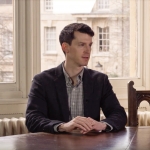When people think of blockchain some think of digital currency Bitcoin because they both seem to go hand in hand in the news. But there’s actually a lot more use cases for blockchain technology that aren’t centered around the currency space. Blockchain is a public ledger that automatically records and verifies transaction. Actually almost any asset can be traded by using the same distributed ledger technology—or DLT— that powers cryptocurrency.
Due to the increasing need for transparency and the verifiable register of transaction data, more identity structures that leverage blockchain technology are being created. Since blockchain operates through a decentralized platform it is essentially fraud resistant.Through blockchain we can cryptographically authenticate that we really did eat at the restaurant we’re reviewing and can immediately verify that our online date is indeed a farmhouse-owning CEO.
Not only can blockchain eliminate online fraud, DLT can also be used to automatically execute agreements once a set of specified conditions are met. These “smart contracts” have the potential to reduce paperwork in many sectors from education to potentially one day fixing the ongoing issues with democratic voting.
Today I discussed the potential of democratizing blockchain with Joshua Broggi, founder and director of blockchain university Woolf and Santiago Siri, Founder of Democracy Earth Foundation, a Y-Combinator backed non-profit building incorruptible digital governance technology.
- Santiago Siri
- Joshua Broggi












